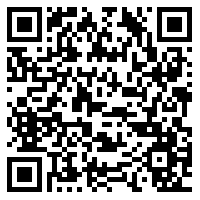Failure is part and parcel of our lives. No matter where we’re from, what we do, or where we want to be. For entrepreneurs failures are particularly important as it’s thanks to them that they can keep improving their products and services.
Sometimes, though, failures may be truly demotivating and to persist in doing what you’ve chosen to do you, you will need a resilient spirit and unbreakable character.
Check out: For Entrepreneurs, Failure Isn’t Always a Good Teacher
Listen
Glossary
- rites of passage
- burn the midnight oil – to work, study, etc., until late at night
- gun shy –hesitant wary, or distrustful, especially because of previous unpleasant experience
- dwindle – to become smaller and smaller; shrink; waste away:
- forgo – to abstain or refrain from; do without
- cry wolf – to give a false alarm
- suspension of disbelief – willingness to suspend one’s critical faculties and believe the unbelievable; sacrifice of realism and logic for the sake of enjoyment
Think about it
Answer the questions below.
- Describe the author’s attitude towards failure of an entrepreneur.
- What does the author mean by “you’re in for the fight of your life.” (paragraph 3)
- Why did the first and the second business models fail?
- Why were the investors reluctant to give funding when the author’s business finally started to take off?
- What two things are usually entrepreneurs good at?
Practice makes perfect
Fill in the blank spaces with the correct forms of the words in capitals.
Much has been said about the virtues of _______ FAIL — it’s a learning opportunity, it happens to everyone, it’s character-building. Failure is becoming some ________ ROMANCE rite of passage, invoking images of young entrepreneurs burning the midnight oil and yelling “Eureka!” I can say from experience that any entrepreneur who fails _________ REPEAT before finding the golden ticket had better be ready to coat themselves in _________ PROTECTION armor, because your stakeholders may not be as understanding of your failures.
Fill in the blank spaces with the words in bold.
cold – blind – brace – gun – flat-out – sense
Failure makes many of us less confident and less aggressive. We become ______ shy. That’s not surprising. Unfortunately, the ______ reality is that once you’ve failed as an entrepreneur, you need to have ______ confidence and a healthy ______ of aggression to prove to people that you actually can succeed. You need to try again, and ______ yourself to be criticized, lectured, doubted, and ______ ignored by investors and sometimes even your own team. If at first you don’t succeed, you’re in for the fight of your life.
Use the verbs in the brackets in the most appropriate tenses.
I _________ (identify) our winning product, but I _________ (be) late to the game. So what _______ (I do)? Did I pick myself up off the floor, dust myself off, and power ahead? Not really. My team and I still _________ (have) total faith in our concept, but the reality of having failed before made me nervous to take risks. I ___________ (not have) the confidence to push my investors to support the idea and decided to essentially bootstrap the business, which worked, but cost us precious time. The business succeeded and the rest is history 13 years later, but we ________ (be) three times the size we are now [if I] _________ (be) stronger.
Explore it more
(1435)
Podcast: Play in new window | Download





